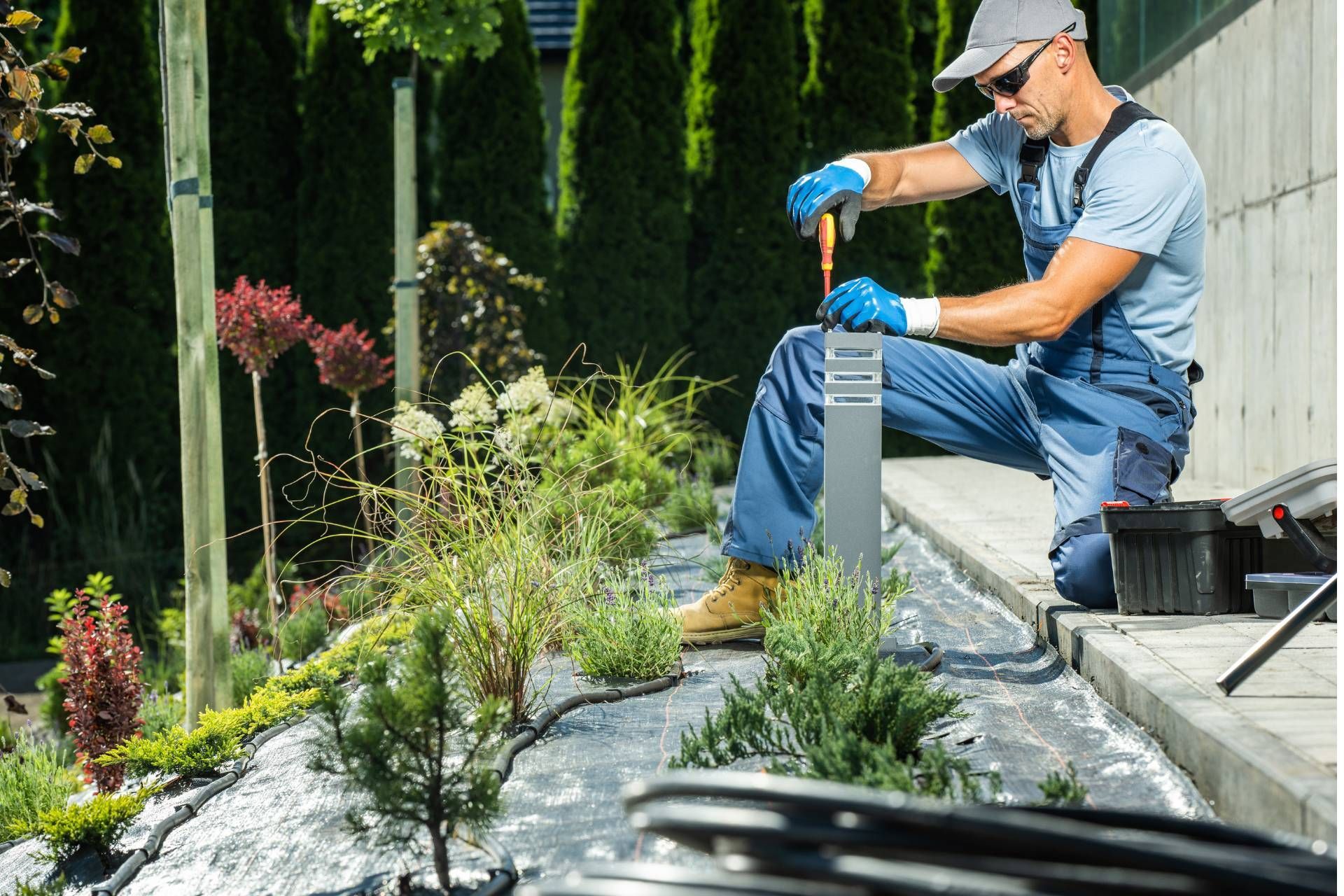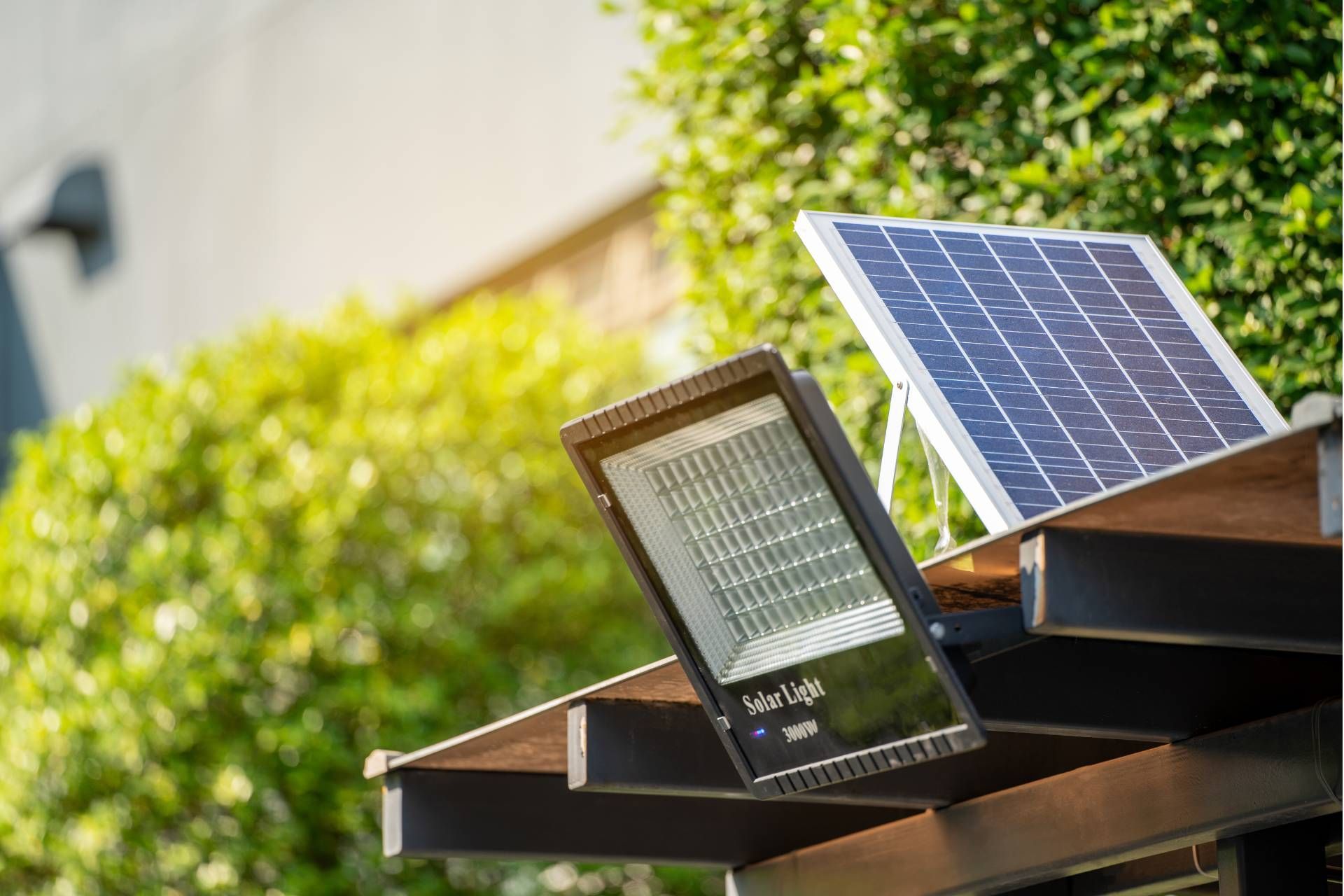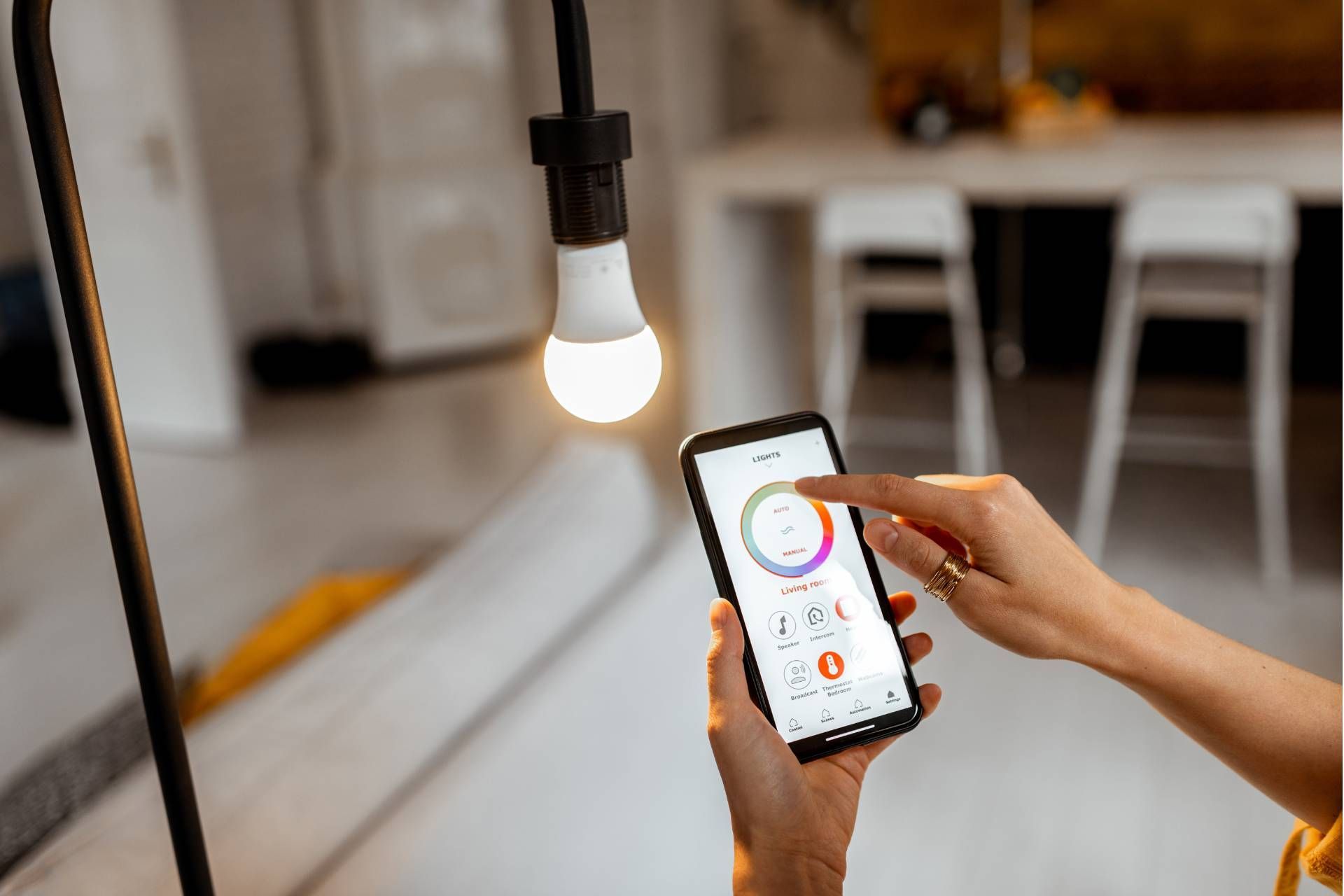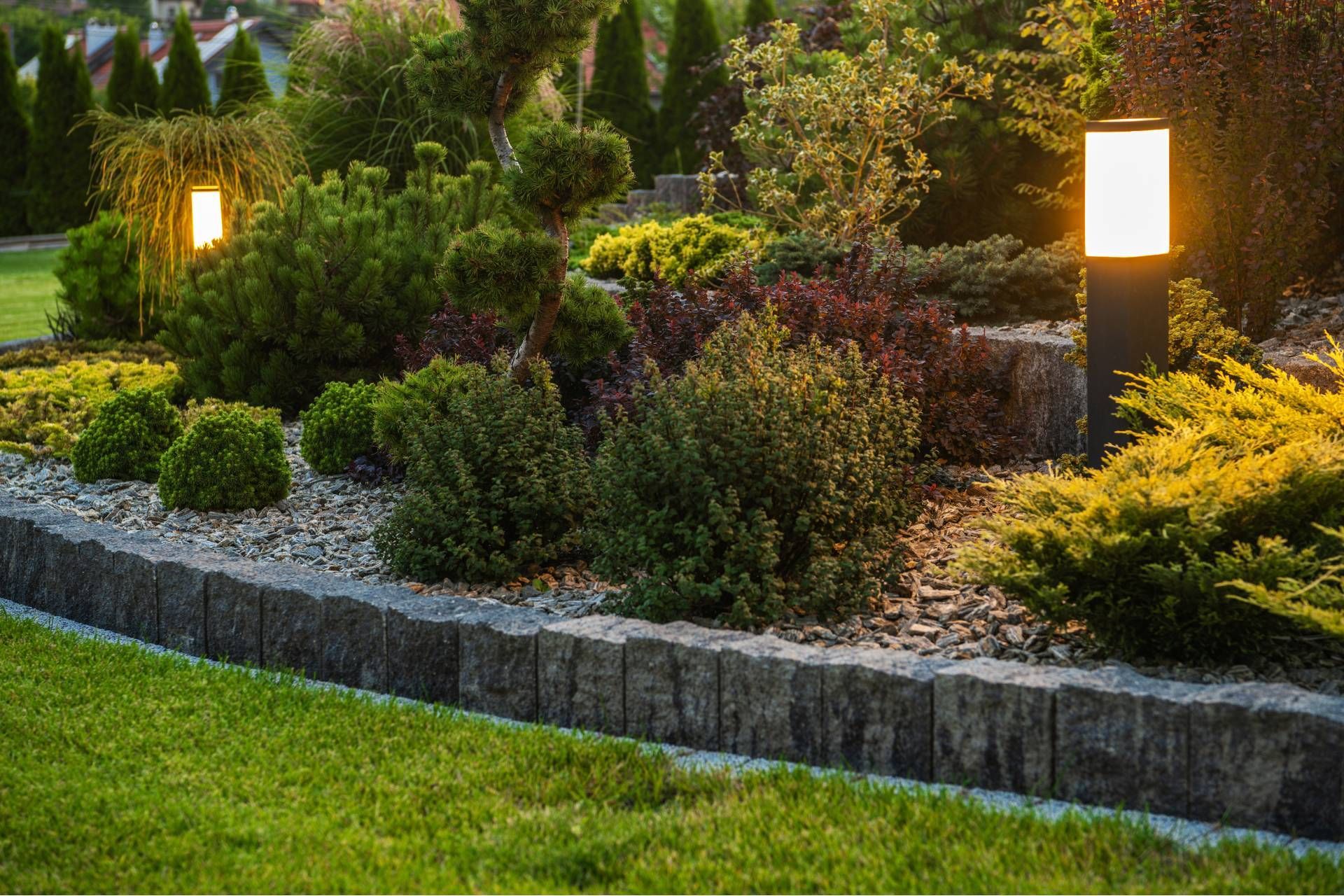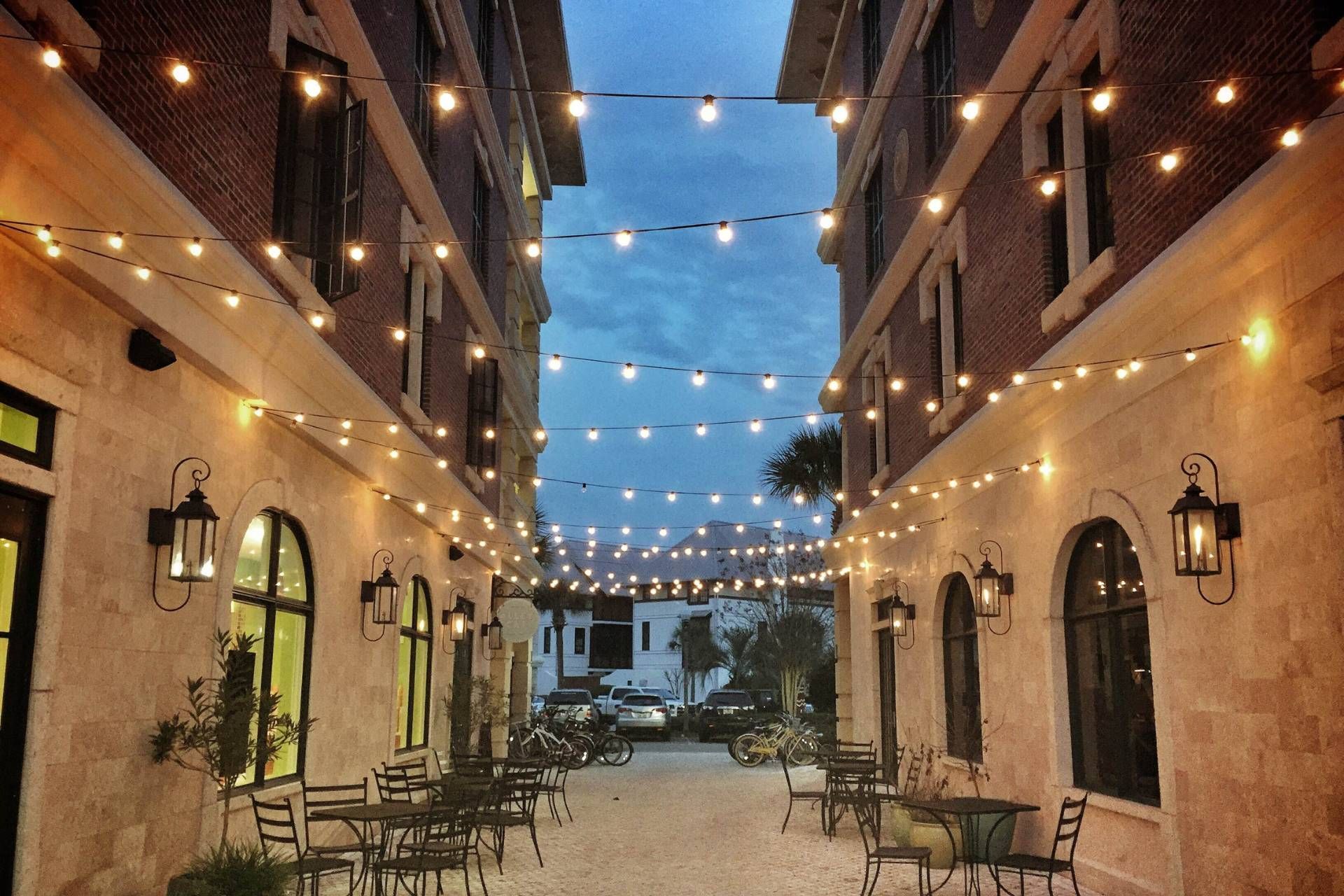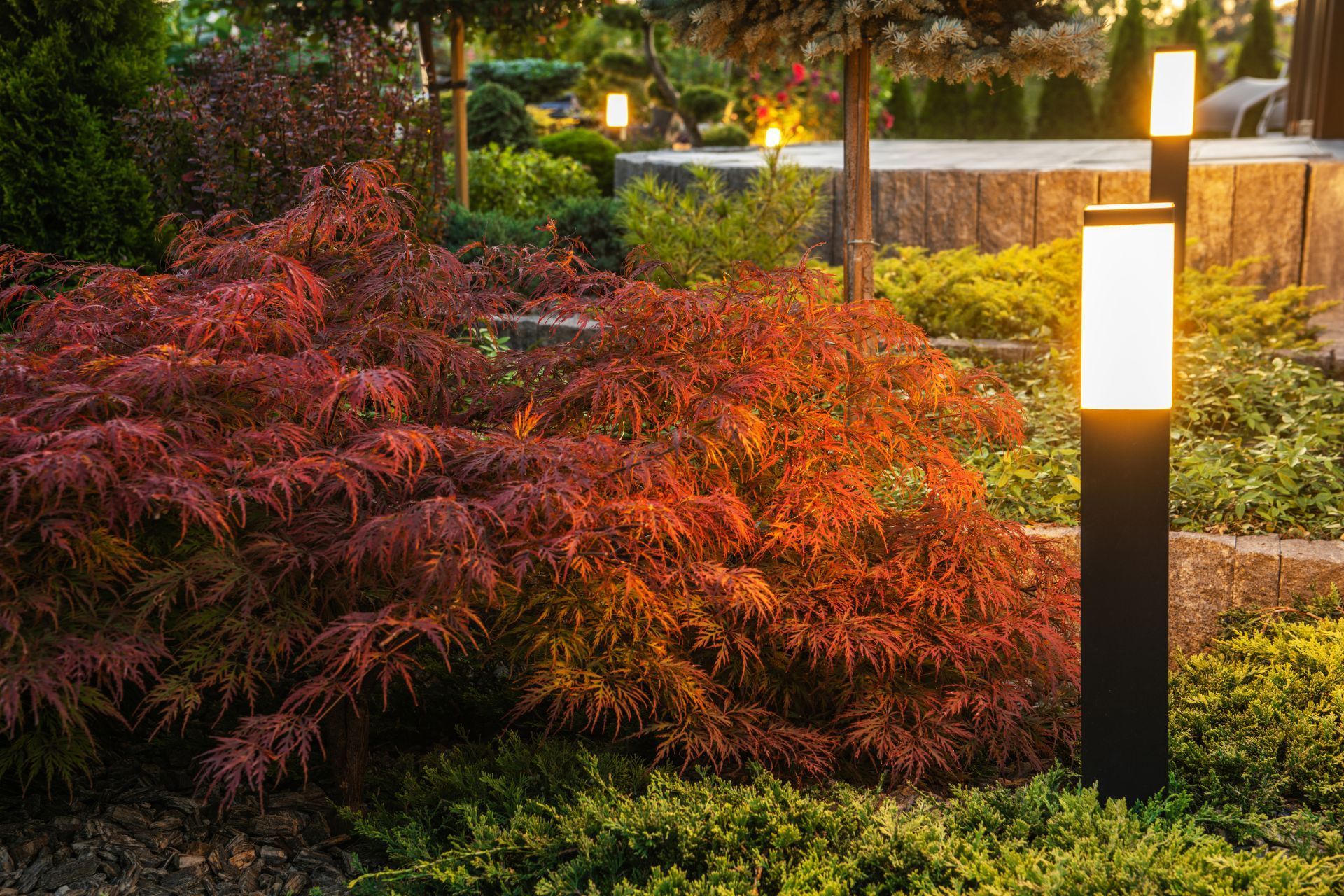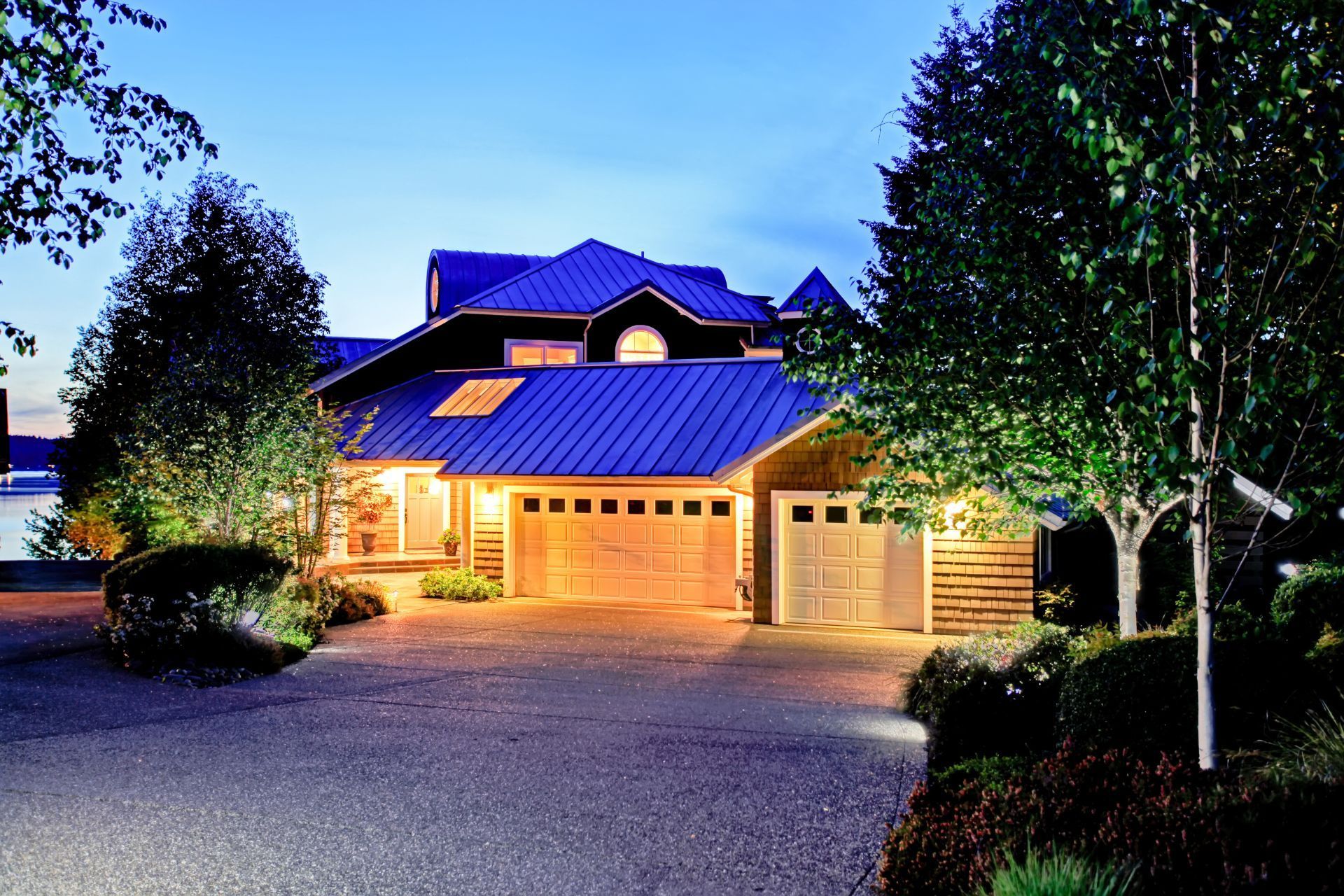How do you maintain outdoor lighting?
Outdoor lighting can add beauty, safety, and functionality to your home's exterior. Whether you have pathway lights, spotlights, or decorative string lights, it's important to properly maintain them to ensure they continue to shine brightly and last for years to come.
When it comes to maintaining outdoor lighting, think of it like tending to a garden. Just as you wouldn't expect your plants to flourish without proper care, neglecting your outdoor lights can leave your yard looking dim and uninviting.
Here are some tips on how to maintain your outdoor lighting.

Regularly clean your lights
Outdoor lights play a crucial role in enhancing the aesthetics and functionality of your outdoor space. Whether you have a beautifully landscaped garden, a cozy patio, or a spacious deck, outdoor lights can illuminate and highlight the beauty of your outdoor area. However, over time, outdoor lights can accumulate dirt, dust, and grime, which can impact their effectiveness and appearance. That's why it's essential to regularly clean your outdoor lights to ensure they continue to shine bright and look their best.
One of the most common reasons why outdoor lights become dirty is due to their exposure to the elements. Rain, wind, and even snow can leave a layer of dirt and debris on your outdoor lights, diminishing their brightness and performance. In addition, insects and bugs are attracted to outdoor lights, leaving behind residue and stains that can further compromise their effectiveness.
To keep your outdoor lights looking clean and performing at their best, it's important to establish a regular cleaning routine. Here are some tips to help you effectively clean your outdoor lights:
1. Turn off the power: Before you begin cleaning your outdoor lights, make sure to turn off the power source to avoid any accidents or electrical shocks.
2. Remove any debris: Start by removing any leaves, dirt, or cobwebs from your outdoor lights using a soft brush or cloth. This will help prevent the accumulation of dirt and debris, ensuring your lights continue to shine bright.
3. Use a mild cleaning solution: Mix a solution of mild soap and water in a bucket and use a soft sponge or cloth to gently clean the surface of your outdoor lights. Avoid using harsh chemicals or abrasive cleaners, as they can damage the finish of your lights.
4. Rinse thoroughly: After cleaning your outdoor lights, rinse them thoroughly with clean water to remove any soap residue. Make sure to dry them completely before turning the power back on.
5. Inspect for damage: Take this opportunity to inspect your outdoor lights for any damage or signs of wear and tear. Replace any broken bulbs or damaged parts to ensure your lights continue to function properly.
Inspect for damage
It's important to regularly inspect your outdoor lights for any signs of damage to ensure they continue to function properly and avoid potential safety hazards.
To prevent damages, it's important to regularly inspect your outdoor lights and perform any necessary maintenance or repairs. Start by visually inspecting each fixture for signs of damage such as cracks, corrosion, rust, or loose wires. Check that the bulbs are securely in place and in good working condition. Clean off any debris or accumulation on the lights and make sure they are properly sealed to prevent moisture from entering.
If you notice any signs of damage or if your outdoor lights are not working properly, it's important to address the issue promptly. Depending on the extent of the damage, you may be able to repair the lights yourself or you may need to call in a professional electrician for assistance. In some cases, it may be more cost-effective to replace the damaged lights entirely.
Trim foliage
If your outdoor lights are surrounded by trees, bushes, or other foliage, be sure to trim them regularly to prevent branches or leaves from obstructing the light. This will not only ensure that your lights are shining brightly but also help to prevent any potential fire hazards.
Replace bulbs as needed
Outdoor lights serve several important purposes, from providing safety and security to enhancing the overall aesthetic of our homes. However, if the bulbs in these lights are not working effectively, then their functions are compromised.
One of the most common issues that outdoor lights face is burnt-out bulbs. Over time, the bulbs in outdoor lights can become dim or completely stop working. This can be due to a variety of reasons, such as age, weather exposure, or simply regular wear and tear. Whatever the cause, it is essential to replace these bulbs as soon as possible to ensure that your outdoor lighting is functioning at its best.
Replacing bulbs in outdoor lights is a simple task that can have a big impact on the look and feel of your outdoor space. By ensuring that your outdoor lights are shining bright, you not only improve the safety and security of your home but also create a welcoming and inviting atmosphere for yourself and your guests.
To replace the bulbs in your outdoor lights, start by turning off the power to the lights at the breaker box. Then, carefully remove the old bulb from the fixture and replace it with a new one of the same wattage and type. Be sure to securely tighten the bulb in place and turn the power back on to test the light. If you are unsure of which type of bulb to use or how to properly replace it, consult the manufacturer's guidelines or seek the help of a professional.
Protect against the elements
To ensure that your outdoor lights remain in good condition and continue to illuminate your outdoor space effectively, it is important to protect them against the elements.
One of the main threats to outdoor lights is moisture. Rain, snow, and even humidity can seep into the wiring and components of outdoor lights, causing them to short circuit or malfunction. To protect your outdoor lights against moisture, make sure they are properly sealed and waterproofed. Choose outdoor lights that are specifically designed for outdoor use and have a high IP (Ingress Protection) rating to ensure that they can withstand exposure to moist conditions.
Another element to protect your outdoor lights against is UV radiation. The sun's UV rays can cause the plastic or glass components of outdoor lights to fade, yellow, or become brittle over time. To protect your outdoor lights from UV damage, choose lights made from UV-resistant materials or apply a UV-resistant coating to the lights. Additionally, consider placing outdoor lights in shaded areas or using light fixtures with built-in UV protection.
Wind and debris can also pose a threat to outdoor lights. Strong winds can knock over light fixtures or cause them to sway, potentially causing damage to the lights or their wiring. To protect your outdoor lights against wind damage, make sure they are securely installed and anchored into the ground. Consider using heavier or more robust light fixtures that can withstand windy conditions.
Adjusting and Aligning Lighting Placement
Adjusting and aligning the placement of your outdoor lighting fixtures is crucial for optimizing illumination and enhancing the aesthetic appeal of your outdoor space. To ensure optimal energy efficiency, consider positioning your lights strategically to minimize wasted light and focus the illumination where it's needed most. Aim lights away from direct sources of water or reflective surfaces to avoid unnecessary glare and light pollution. Regularly adjust the angle and direction of your fixtures to accommodate changes in landscaping or outdoor furniture placement, ensuring that pathways and key features remain well-lit.
In addition to energy efficiency tips, implementing weather resistance strategies is essential for maintaining the longevity of your outdoor lighting setup. Choose fixtures specifically designed to withstand the elements, such as those with durable materials like aluminum or copper and proper sealing to prevent water intrusion. Periodically check the alignment of your fixtures after extreme weather conditions to realign them as needed and ensure consistent lighting coverage throughout your outdoor area.
WOODS
LUMINAIRES
Head Office
Inquiries
For any inquiries, questions or commendations, please call: (435) 535-1351
Copyright © 2023 Woods Luminaires, All Rights Reserved. Privacy Policy


